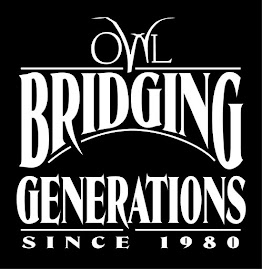SOCIAL SECURITY AND MEDICARE – ENTITLEMENTS –
FIT LINCOLN’S VIEW OF GOVERNMENT’S PROPER ROLE
By Merton C. Bernstein, Coles Professor of Law Emeritus, Washington University;
served as the principal consultant to the National Commission on Social Security Reform;
a founding board member of the National Academy of Social Insurance
served as the principal consultant to the National Commission on Social Security Reform;
a founding board member of the National Academy of Social Insurance
Lincoln declared that “The legitimate object of government is to do for people what needs to be done but which they cannot, by individual effort, do at all, or cannot do so well for themselves.” President Obama reminded us on Lincoln’s birthday. Social Security and Medicare fulfill this role. But groups like the Heritage Foundation [MCB1] distort what entitlement means, implying, among other things, that benefits are unearned, foolishly designed and unduly favor the elderly who, surprise, surprise, are really wealthy.
“Entitlements” means that claims must be determined by law rather than an official’s discretion. In an earlier day, private charity or public relief focused on the “deserving poor.” Who got help all too often turned on the race, religion, politics or “character” of the applicant. That sometimes led to abusive and exploitative actions by the deciders.
Eligibility for Social Security benefits and Medicare protections are “earned rights” enforceable at law. Nonetheless some disparage “entitlements” by assigning a quite different meaning to the term, as if program participants regard benefits as their due, that the world owes them a living. In sober fact, most economists regard the required payroll contributions, required equally of the employee and the employer, as part of employee compensation. Absent those contributions, employee wages would be commensurately higher.
Social Security and Medicare have another key protection – they are automatically funded. In contrast, Medicaid and other means-tested federal/state program benefits are payable only to the extent that each state legislatures decides annually how much to appropriate. Unfortunately, Medicaid is often the first target for cuts when budget problems arise.
The Earned Income Tax Credit Offsets the Double Whammy of the Payroll Tax and the Income Tax on the Low Paid
Some sneer that more people pay FICA (the Federal Income Contributions Act) than pay income tax, as if that were some loony federal government mistake. But that results purposefully from the Earned Income Tax Credit (EITC). Decades ago, policy makers understood the double burden that the income tax and FICA placed on low and moderate earners.. EITC was the answer. It rewards earned income by reducing or eliminating income tax for low earners but continues the FICA contributions; that preserves the “earned benefit” connection that FICA gives to Social Security. And by lessening the tax burden for low and modest earnings, EITC makes Social Security funding more progressive than FICA’s impact considered alone. Weighting the Social Security benefit formula so that low and moderate pay produce higher proportional benefits than high pay serves the same purpose. Even so, the higher one’s average lifetime pay, the higher are one’s benefits.
Entitlements Do Not Favor the Wealthy Elderly at the Expense of the Young ; Cuts Hit the Young Hardest
Some Social Security critics complain that the old people get more federal goodies than youngsters. This overlooks how much Social Security benefits young people, while the states address their traditional responsibility, education, with assists from the feds.
Some are hoodwinked into believing that the elderly are richer than everyone else.
Recently, Time columnist Michael Kinsley reported that in 2004 the “average” couple 65-74 had accumulated wealth of $691,000, a figure vastly inflated by a small number of extremely wealthy people; couples at the “median” (half had less) had accumulated $190,000. Singles did not do half so well. For most people, an owned home is the most valuable property. Since 2004, home values have gone the way of the glaciers.
Indeed, any reductions in benefits, and raising normal retirement age cuts benefits for all thereafter, bears most heavily on the young; the younger one is, the bigger the total benefit reductions.
Social Security – Our Best Anti-Poverty Program, Especially for Women
With Social Security, about 10% of the elderly are in poverty; without Social Security that figure would be over 50% - the majority of them women.
In sum, entitlements are just what Lincoln ordered.







No comments:
Post a Comment